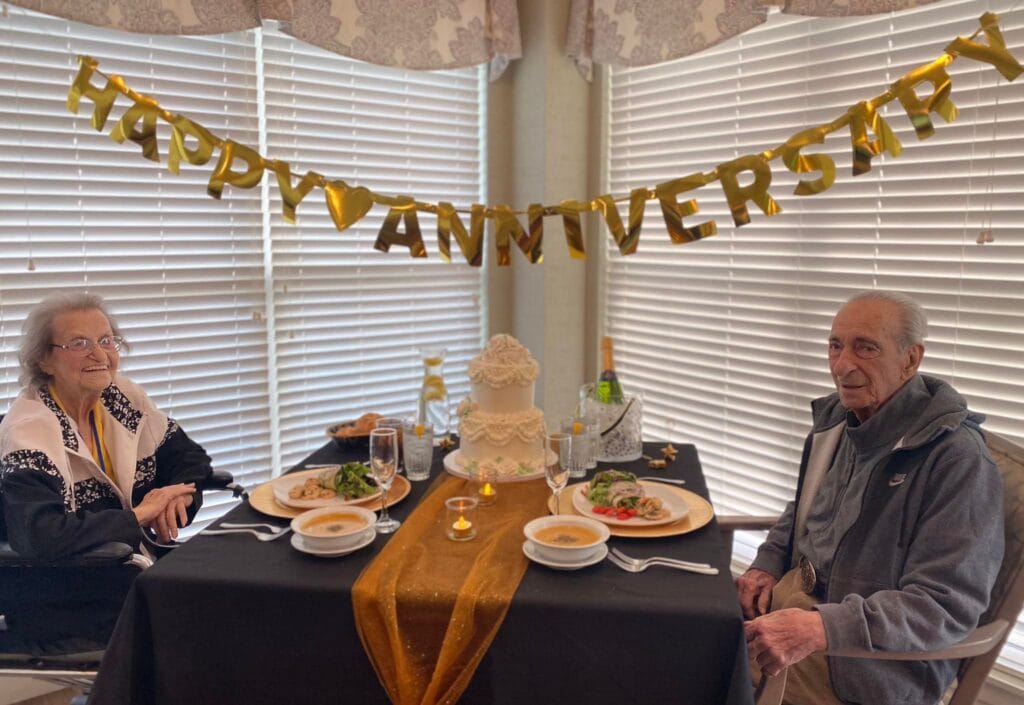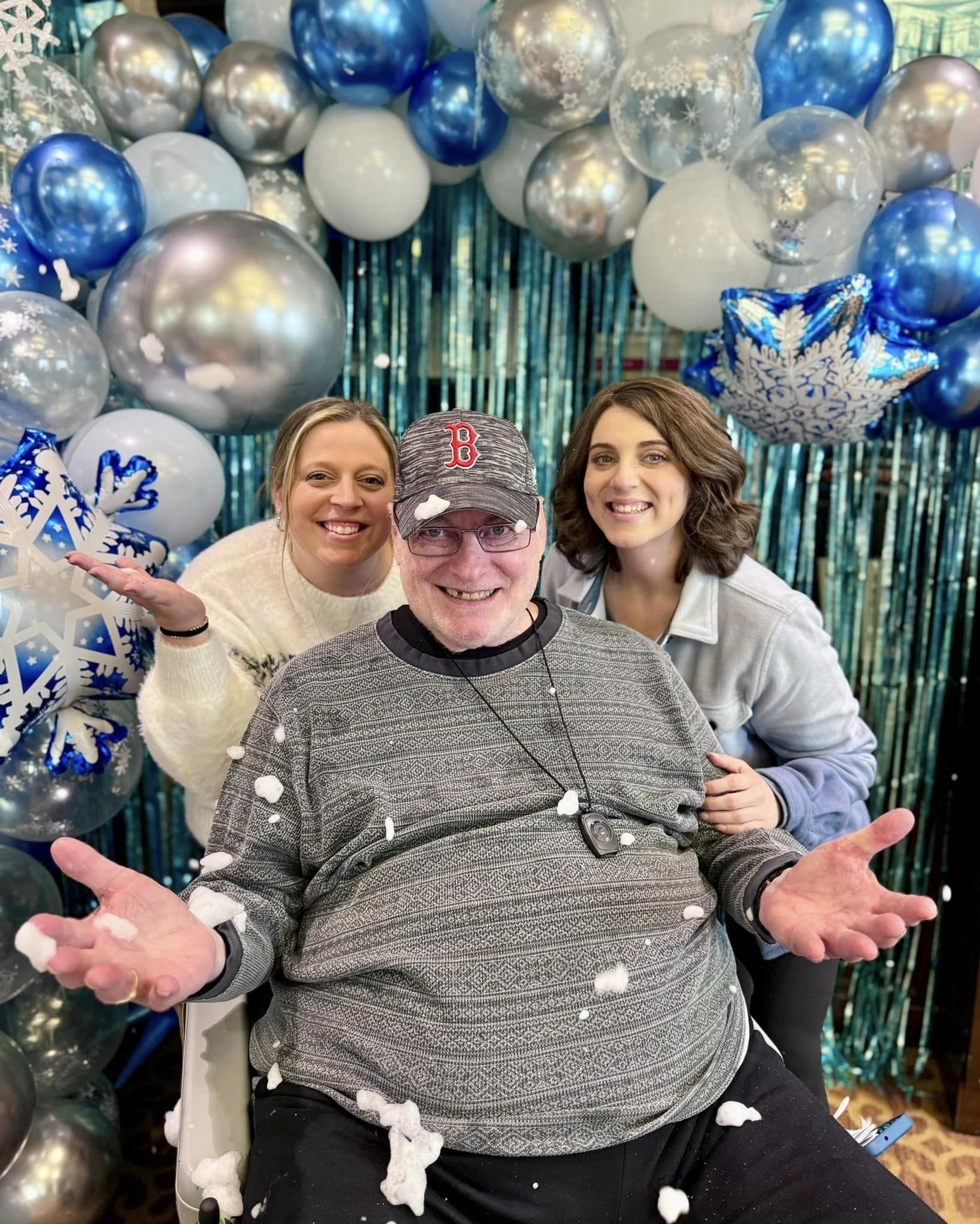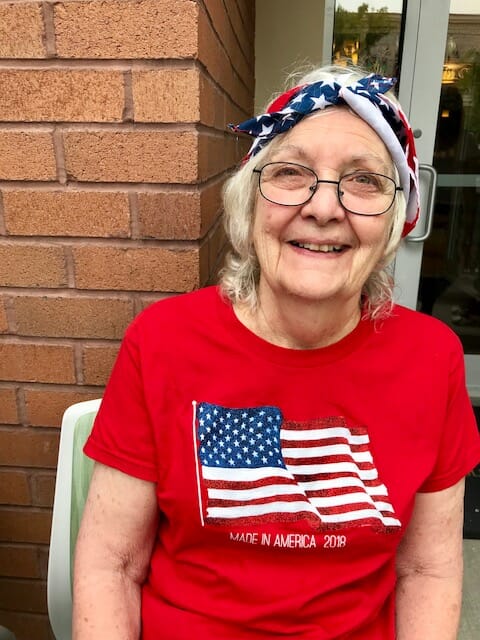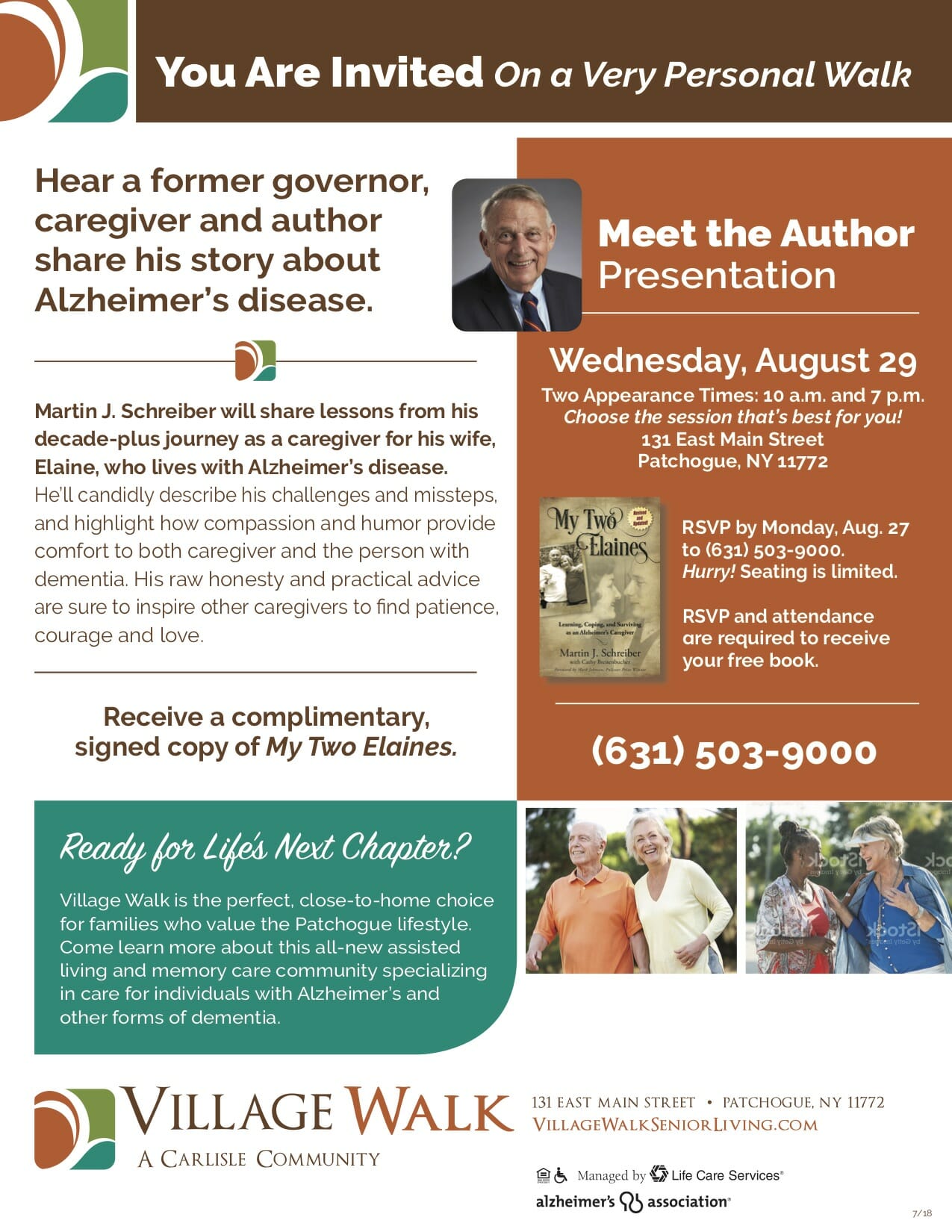As we age, our health and independence become more and more important. It’s no surprise that assisted living can be an attractive option as we glide into our later years.
With so many different requirements, perks, and criteria for entry, it’s down right tough to know who qualifies (and doesn’t) for assisted living.
We understand, and we want to let you know that we’re here for you. If you’re struggling to find comprehensive information about who qualifies for assisted living, you’ve come to the right place.
At Village Walk in Patchogue, New York, we’re here to answer all your questions. Join us!
In this article, we’ll discuss what the qualifications and admission criteria are for assisted living. We’ll also cover potential reasons for disqualification as well as what comes next if you’re approved for assisted living.
Key article takeaways
- Ideal candidates for assisted living need minimal skilled nursing or rehabilitation services, help with medication management, and help with activities of daily living.
- Seniors with severe memory impairments, who are bedridden, or who require more care than an assisted living facility can provide may be best suited for other long-term care.
- Once approved to live in an assisted living community, residents will complete legal forms, share their medical history, take initial health assessments, and create a long-term care plan.
- Other forms of long-term care include board and care, memory care, skilled nursing care, continuing care retirement communities (CCRC), and enhanced assisted living communities.
Who qualifies for assisted living (a brief overview)?
Assisted living is most appropriate for individuals who need the following:
- Minimal skilled nursing or rehabilitation services
- Help with medication management
- Help with activities of daily living such as eating, bathing, grooming, and dressing
Assisted living is not for individuals who need continuous supervision and extensive medical care, or who live with conditions like Lewy Body dementia. Residents requiring five or more hours a day of medical or personal care would be best suited for memory care or other forms of long-term care.
The qualifications explained
It’s all fine and well to know that those who need less help can qualify for assisted living. But what does “less help” look like?
When we say “less help” and “qualified,” residents must have a stable amount of mental and physical fitness and independence when it comes to participating in daily activities. We’ll describe each of these terms in greater detail in the next sections.
Daily help is needed
To qualify for assisted living, residents must need help with at least two activities of daily living (ADLs) from the following list:
- Bathing
- Grooming
- Dressing
- Standing up or sitting down from chairs
- Walking
- Continence relief and care
When assisted living may be a viable option
Residents can receive a high level of care in assisted living. However, they wouldn’t be eligible for care if they required round-the-clock monitoring.
George is an 83-year-old male who lives on his own. For the most part, George has been able to cook, garden, and clean around the house for the bulk of his life.
On a recent visit home, his son, Joe, noticed that George has been forgetting to take his medication. Joe notices George has been unsteady when rising out of his lazy boy armchair.
Tom worries. He doesn’t want his dad to fall — or worse — need to go to the emergency room on account of skipping medication. George agrees.
Together, they set up a consultation with an assisted living facility coordinator. Joe explains his dad’s forgetfulness and unsteady knees.
Based on Tom’s concerns, the assisted living coordinator thinks George would qualify to live in an assisted living facility.
Residents: predictability and stability is a must
If a resident is predictable, stable, and doesn’t need 24/7 monitoring or a high level of care, they’re eligible for assisted living.
To clarify, residents can receive a high level of care in assisted living. But, they wouldn’t be eligible to continue living in an assisted living facility if they needed round-the-clock monitoring.
Let’s take a look at one more example to hammer this point home.
An example: when assisted living may be right for you
Joe’s mom, Amber, lives with high blood pressure and arthritis.
She hasn’t been able to take care of her high blood pressure with diet, exercise, and appropriate medications.
She recently entered a skilled nursing facility per her doctor’s recommendations. After a few short weeks learning to eat the right foods, exercise, and take her medications, Amber’s doctor felt she could now care for her health on her own.
Amber wanted to join Tom’s dad, George, at George’s facility. So, she reached out to a concierge staff member to check if she qualified for assisted living.
In this scenario, Amber can be discharged from skilled nursing care and move to assisted living with her husband.
Because Amber is predictable, stable, and doesn’t need 24/7 monitoring or a high level of care, she is eligible for assisted living.
When a person isn’t eligible for assisted living
You might be wondering, “Are there any situations where a person wouldn’t be eligible to live in an assisted living facility?” Many senior living options have certain criteria for admission.
With assisted living, staff have the right to deny admission if the care needed exceeds what the facility can offer.
If a senior could jeopardize the safety and health of other residents, the senior may be denied admission to an assisted living facility. Some of the most common conditions for disqualification include seniors who have severe memory impairments, who need extensive medical care, or who are bedridden.
Seniors with severe memory impairments
Seniors with severe memory impairments aren’t often the best candidates for assisted living. For example, patients with dementia or Alzheimer’s often have trouble eating or have behavioral issues.
Patients with severe memory impairments could be prone to wandering. Since assisted living residents are free to come and go as they please, those with severe memory impairments could be a danger to themselves in an assisted living facility.
Patients with severe memory impairments are better suited for memory care. Some care facilities offer both memory care and assisted living in one building.
For example, should a resident decide they need a higher level of care — or no longer meet the eligibility requirements for assisted living — they can transition into an on-site memory care facility. At Village Walk, we offer both assisted living and memory care on our premises.
Residents can rest assured that their friends, belongings, and care plan will stay with them when they transition to memory care.
Extensive mental or physical care needed
By the same token, certain medical needs can disqualify a person from assisted living.
Assisted living facilities may not have the staff, access to treatment, or care needed to provide medical support for specific injuries or accidents. These patients are often referred to skilled nursing facilities (or other facilities) instead.
Some examples of medical conditions assisted living couldn’t help with include:
- 24/7 supervision or medical care beyond what the facility can provide
- Conditions involving chewing, swallowing, and/or wandering. These conditions can result in accidents or injuries.
- Wound care (e.g. gastrostomy care, tracheostomies, staph and other infections, or care requiring feeding tubes)
Individuals who are confined to their beds
One of the requirements for approval for assisted living is that a resident must be able to move about with minimal difficulty or support. For example, some assisted living communities help residents move in and out of beds, wheelchairs, or seats.
Bedridden seniors may not qualify for assisted living. Instead, these seniors are often referred to skilled nursing care facilities or memory care facilities to get the care they need.
Table: A breakdown of the qualifications
| When a person is eligible for assisted living | When a person isn’t eligible for assisted living |
| 1. Some help is needed with activities of daily living (ADLs) and medication management 2. Seniors who are very predictable and stable in mind and body 3. No excessive memory impairments | 1. Extensive mental or physical medical care needed for a sustained injury or ongoing medical condition 2. Individuals who are bedridden or may live an unstable routine due to their condition 3. Seniors with severe memory impairments |
After being admitted: the requirements for assisted living living
Once residents are approved, they’re able to enjoy all the benefits of assisted living including receiving help with activities of daily living and much more. But first, residents must take care of a few important tasks, such as:
- Completing legal forms and agreements
- Filling out your medical history
- Taking various health assessments
- Creating a long-term care plan
Legal forms and agreements
Most assisted living facilities will ask you to complete a few forms to better get to know you and make you feel at home. Some of these forms include:
- Admissions applications
- Patient consent forms to release important medical information, receive care, and share information from your primary care physician to the facility
- Facility policies to adhere to
- Long-term care insurance documents
- Criminal background forms
- State-required forms
- Other legal forms
In general, residents can complete the paperwork on the day of or before moving into the facility. At Village Walk, you’ll have the choice to sign or have a loved one or a designated guardian sign these forms.
Health evaluations
Most assisted living facilities ask residents to fill out their health and medical history on the day of or before move-in day.
Assisted living admissions coordinators discuss items such as:
- Your height and weight
- Any allergies you may have
- Relevant information related to medical history
Once they gather this information, residents then take a few health assessments.
Health assessments
To ensure residents receive the best care possible, residents will complete a few health assessment forms on the following topics
- The amount of help and care needed
- How to provide medications or help residents manage medications
- Mental health conditions requiring special consideration
- Activities of daily living (ADLs) residents can and can’t currently complete.
- Vision and hearing assessments
The assisted living staff will then use the above information to create an individualized care plan.
Time to create a care plan
Once all the information is collected, assisted living staff determine what level of care is needed. Together with a resident’s physician, the assisted living facility will create a custom care plan.
Care plans include initial and follow-up health assessments. Some facilities even provide detailed care plans which document:
- What medicines are best for the resident
- How often to provide medical help
- Food preferences and dietary restrictions
- Healthy activities or lifestyle preferences
- Personal goals
- Other information needed to care for the resident
“They take such great care of them.”

“Thank you to the staff of Village Walk! Mom and dad celebrated their 73rd wedding anniversary with much joy.
Aly and Chef Tom were so caring and made everything so special for them. They asked me what kind of cake my parents had at their wedding and what their favorite meal was.
They took such great care of them and really made their celebration such a great day for them. Thank you for all you do.
Keep up the great work you all do!” – Jerry G.
Discover whether you/your loved one qualify for assisted living
Older adults who qualify for assisted living need minimal skilled nursing or care, minimal help with medication management, and minimal help with activities of daily living (ADLs). Also, residents should be fairly stable and predictable in their routines and behaviors.
Seniors who likely wouldn’t be the best fit for assisted living include those seniors with memory impairments, who are bedridden, or who require more care services than a facility can offer. Together with you or your loved one’s assisted living intake coordinator and physician, you’ll create a comprehensive plan to make sure you or your loved one feel right at home come move-in day.
At Village Walk, our goal is to make sure you feel right at home before move-in day. Our friendly senior staff work hard to ensure residents and their families are completely satisfied.
If you or a loved one are considering assisted living, don’t hesitate to reach out. One of our friendly resident navigators would be happy to answer any and all questions.
Discover the magic of our cozy Village. We look forward to chatting with you soon.
Frequently Asked Questions About Qualifications (FAQQ)
What qualifies (and disqualifies) a person for assisted living?
Seniors who would be a great fit for assisted living include those who need help with activities of daily living (ADLs) and who are very independent, stable, and predictable in their behaviors, health, and lifestyle.
Seniors with chronic conditions, who are bedridden, or who live with memory impairment are better suited for memory or skilled nursing care. These individuals aren’t qualified for assisted living.
What happens once you’re accepted into an assisted living facility?
After approval, residents fill out various legal forms and health evaluations. Next, they complete several health assessments. Finally, they create a comprehensive care plan addressing their total well-being.
The assisted living team will also check in and adjusts the care plan to better suit and meet the resident’s needs.
What other senior living options exist?
Seniors seeking long-term care options can choose between the following care options:
- Memory care facilities
- Skilled nursing care facilities
- Enhanced assisted living communities
- Board and care facilities
- Continuing care retirement communities (CCRCs)
Where else can I learn about assisted living?
To learn more about assisted living, the National Center for Assisted Living (NCAL) is a wonderful resource. For other helpful information about what to expect in an assisted living community, check out our Village Walk and Village Green communities.
You can also always speak with one of our friendly senior living staff concierge staff. Feel free to contact us today at (631) 503-9000 or villagewalkseniorlivinglife@villagewalkseniorliving.com.








